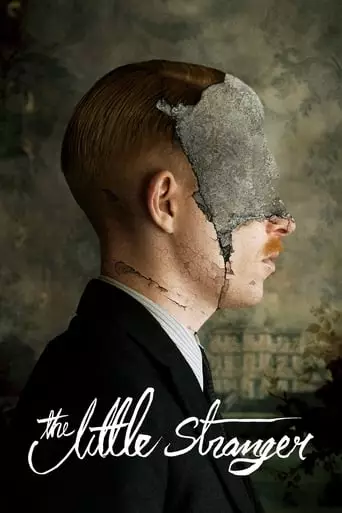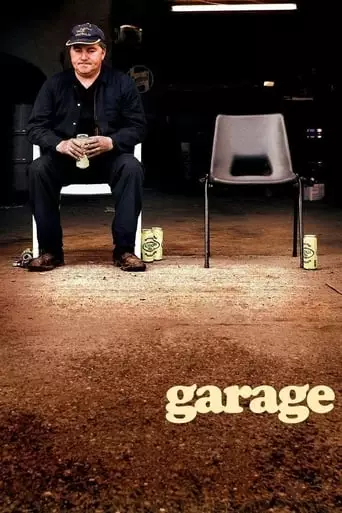In a dusty post-war summer in rural Warwickshire, a doctor is called to a patient at lonely Hundreds Hall. Home to the Ayres family for over two centuries, the Georgian […]

In a dusty post-war summer in rural Warwickshire, a doctor is called to a patient at lonely Hundreds Hall. Home to the Ayres family for over two centuries, the Georgian […]

Due to a learning disability, Josie’s life in a tiny town revolves around a menial job taking care of a garage that could close at any day. Things start to […]

Held captive for 7 years in an enclosed space, a woman and her young son finally gain their freedom, allowing the boy to experience the outside world for the first […]

What Richard Did is a striking portrait of the fall of a Dublin golden-boy and high school rugby star whose world unravels one summer night. What Richard Did (2012), directed […]

A young wannabe musician discovers he has bitten off more than he can chew when he joins an eccentric pop band led by the mysterious and enigmatic Frank. Frank (2014), […]
Lenny Abrahamson: A Master of Intimate Storytelling
Lenny Abrahamson, an acclaimed Irish filmmaker, has carved a niche in contemporary cinema with his deeply humanistic approach to storytelling. Known for his ability to delve into the complexities of the human condition, Abrahamson’s films often explore themes of identity, isolation, and connection. His work, marked by emotional depth and understated visual style, has garnered critical acclaim and established him as one of the most distinctive voices in modern filmmaking.
Early Life and Career Beginnings
Leonard “Lenny” Abrahamson was born on November 30, 1966, in Dublin, Ireland. Raised in a culturally rich environment, he showed an early interest in storytelling and the arts. Abrahamson studied physics and philosophy at Trinity College Dublin, where his intellectual curiosity and analytical mindset began to shape his creative vision.
While at university, he co-founded the Trinity Video Company with friend Ed Guiney, who would later become a frequent collaborator and producer of his films. This partnership laid the groundwork for Abrahamson’s entry into the world of filmmaking.
Breakthrough in Irish Cinema
Abrahamson made his directorial debut with Adam & Paul (2004), a darkly comedic and poignant tale of two heroin addicts navigating a single day in Dublin. The film was celebrated for its blend of humor and tragedy, as well as its empathetic portrayal of marginalized characters. It marked Abrahamson as a filmmaker capable of balancing stark realism with moments of profound humanity.
Signature Films
Garage (2007)
Abrahamson’s follow-up to Adam & Paul, Garage is a quiet and heartbreaking character study of Josie, a socially isolated gas station attendant in rural Ireland. Played with sensitivity by Pat Shortt, Josie’s story unfolds with subtlety and restraint, earning the film critical acclaim and the CICAE Art and Essai Cinema Prize at the Cannes Film Festival.
What Richard Did (2012)
A departure from his earlier work, What Richard Did is a psychological drama about privilege, guilt, and the consequences of a single impulsive act. The film, inspired by real events, examines the moral dilemmas faced by its protagonist, a privileged teenager played by Jack Reynor. Abrahamson’s nuanced direction captures the fragility of human relationships and the ripple effects of tragedy.
Frank (2014)
One of Abrahamson’s most unconventional films, Frank is a quirky dramedy about an eccentric musician (played by Michael Fassbender) who wears a papier-mâché head. Inspired by the life of British musician Chris Sievey, the film explores themes of creativity, mental health, and artistic authenticity. Its blend of absurd humor and emotional resonance earned it a cult following.
Room (2015)
Abrahamson achieved international recognition with Room, an adaptation of Emma Donoghue’s bestselling novel. The film tells the harrowing yet hopeful story of a young woman (Brie Larson) and her son (Jacob Tremblay) held captive in a small room. Larson’s Oscar-winning performance and Abrahamson’s sensitive direction brought the story’s emotional power to life. Room received four Academy Award nominations, including Best Director for Abrahamson.
The Little Stranger (2018)
This gothic drama, based on Sarah Waters’s novel, is a haunting exploration of class, memory, and repressed emotions. Starring Domhnall Gleeson, Ruth Wilson, and Charlotte Rampling, the film demonstrates Abrahamson’s ability to create atmospheric tension while delving into the psychological underpinnings of his characters.
Directorial Style and Themes
Lenny Abrahamson’s work is characterized by:
Emotional Authenticity: His films often focus on deeply human stories, capturing the vulnerabilities and complexities of his characters.
Understated Visuals: Abrahamson employs a minimalist aesthetic, allowing the emotional weight of his narratives to take center stage.
Exploration of Isolation: Many of his films delve into themes of loneliness and the human need for connection, reflecting his philosophical roots.
Versatility: From dark comedies to psychological dramas and literary adaptations, Abrahamson’s filmography showcases his ability to navigate diverse genres while maintaining a cohesive artistic vision.
Television Success
In addition to his film work, Abrahamson has made a significant impact on television. He directed several episodes of Normal People (2020), an adaptation of Sally Rooney’s novel. The series, which explores the intricate dynamics of a young couple’s relationship, was praised for its emotional intimacy and earned multiple award nominations. Abrahamson’s direction brought a cinematic quality to the series, further solidifying his reputation as a master of character-driven storytelling.
Legacy and Influence
Lenny Abrahamson has earned a reputation as a filmmaker who prioritizes humanity and authenticity in his work. His ability to draw powerful performances from his actors and his commitment to telling emotionally resonant stories have made him a favorite among critics and audiences alike.
As a director who consistently challenges himself with new genres and themes, Abrahamson continues to push the boundaries of contemporary cinema while staying true to his artistic ethos.
Conclusion
Lenny Abrahamson’s career is a testament to the power of intimate storytelling. Whether exploring the fragility of human relationships in What Richard Did, the resilience of the human spirit in Room, or the quirks of creativity in Frank, his films resonate with universal truths.
As he continues to create thought-provoking and emotionally engaging work, Lenny Abrahamson remains one of the most distinctive and respected filmmakers of his generation.